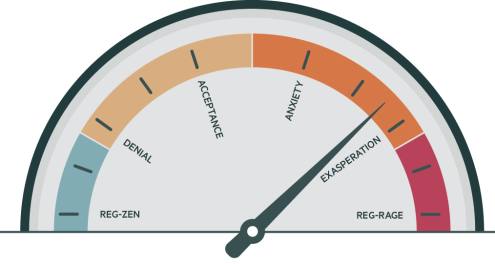As the lunar new year fast approaches, the national calendar is not the only system bound to enter a new era in 2024. In a bid to combat fraud within its banking system, on December 17, China’s State Council unveiled rules on the supervision and administration of non-bank payment institutions, which will take effect in May.
The regulation includes the implementation of tough licensing rules, stronger risk management protocols and protection of users’ information, tougher scrutiny of fees and prices for services, and harsher penalties for rule violations.
According to Terry Yang, partner at law firm Clifford Chance, new legislation is necessary to boost transparency and allow regulating bodies to overlook the industry and introduce new policies that can better serve the general economy.
“China has quickly become a cashless society, where the vast majority of payments are conducted through mobile payment platforms like Alipay and WeChat Pay, and those transactions are not visible to the regulators unless there is an arrangement put in place that allows for the sharing of information,” says Yang.
According to the 2023 Global Payments Report from financial technology provider Fidelity National Information Services, China remains a frontrunner in the national adoption of digital wallets, used to complete transactions both in-store and online. In 2022, transactions through wallets accounted for 81 per cent of all e-com transaction value.
As of June 2023, there were 943mn active mobile payment users in China, with 92 per cent and 85 per cent of Chinese respondents preferring Alipay and WeChat Pay, respectively, according to a 2024 report from consulting group Daxue, based on a number of sources.
“I think there comes a time for fintech businesses where they become mature enough to start being treated similarly to large and sophisticated financial institutions,” says Yang. He adds that when mobile payment providers start offering financing services to consumers that are outside the payment sphere, regulators should start looking into their business operations.
“Alipay started as a payment platform, but over the years, evolved to offering loans via companies within its ecosystem,” he says. Since its launch in 2004, Alipay has branched out of the payments sphere and now offers other financial services, including wealth management products, insurance, and loans.
Broader fintech crackdown
Until a few years ago, the country’s biggest tech firms enjoyed almost unchallenged and unsupervised growth. Things have changed in the last few years, with the restructuring of some of these companies, including Tencent, ByteDance and Meituan, leading to losses of trillions of dollars in market value and significant changes within the sector.
In July 2023, the Chinese government fined Ant Group, a company affiliated with tech giant Alibaba and owner of Alipay, a total of Rmb7.1bn ($1bn) for breaking corporate governance and financial consumer protection rules. Three years ago, Beijing forced the tech giant to cancel its initial public offering.
Alicia García-Herrero, chief economist for Asia-Pacific at Natixis, says: “This new development with non-bank payment institutions being treated more harshly is part of an ongoing issue with shadow banking in China.”
“Historically, non-bank financial companies have had much less capital than banks, and the whole point of these regulations is to have them build up more capital or operate in a much more constrained way,” says García-Herrero. “Trust companies have also been asked to reduce or offload their real estate exposure and let bigger banks support developers,” she comments.
In November 2023, Chinese authorities opened an investigation into suspected illegal conduct by private wealth giant Zhongzhi Enterprise Group and its affiliated trust, Zhongzhi International. The firm is at the centre of China’s sizeable shadow banking market, worth around $2.9tn. The company’s business ventures within the local real estate sphere are extensive and tied, to a certain degree, to the development company Evergrande. Zhongzhi filed for bankruptcy in January.
A new regulator
The introduction of new regulations for non-bank payment service providers comes at a time when the government aims to consolidate oversight of the financial sector. On May 18 2023, the government announced the creation of a new regulator, the National Administration of Finance Regulation, which replaced the former China Banking and Insurance Regulatory Commission.
At the central government level, NAFR will be in charge of regulating all financial sectors, excluding the securities industry. Additionally, the new system will monitor investors’ and financial consumers’ protection.
“I think that there is a perception within the government that there is a need for the regulatory environment to be upgraded to international standards before liberalising the financial sector,” says Yang. “The formation of the new super-regulator is part of the perceived way forward to internationalise the market and that the plan could be revisited further in the coming years,” he adds.
Under the new plan, NAFR will take over the responsibilities of the CBIRC. Additionally, the new regulator will oversee certain operations of the People’s Bank of China and the China Securities Regulatory Commission. But how will this new system benefit banks?
“Financial institutions will benefit from this new system because major banking problems will be dealt with in a quicker way,” says García-Herrero. “I think that all the small banking failures that we saw during the pandemic will not happen with this new regulator because any hint of a systemic risk will be covered.”












